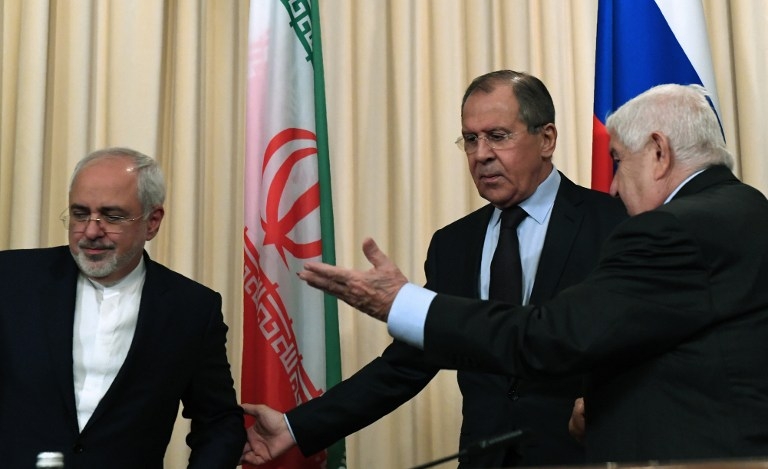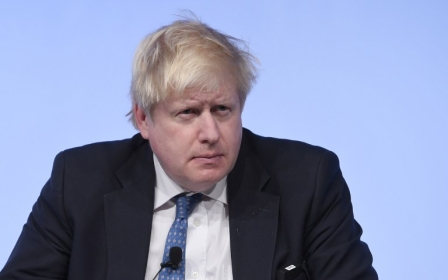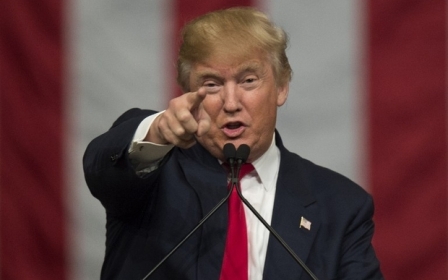Why Trump should cooperate with the Iran-Russia coalition to defeat IS

President-elect Donald Trump has announced that defeating the Islamic State (IS) group would be one of his foreign policy priorities in the Middle East.
Sow division between Iran and Russia, and the motivation they have to work together will be lost
In order to achieve this goal, he said that he would cooperate with Russia. He has also said that the nuclear deal (JCPOA) has strengthened Iran in the region and that the US should follow policies that can check its strength.
How would Trump’s apparent policy plans impact the current Iran-Russia coalition and, consequently, the fight against IS, and peace in Syria?
Some speculate that the president-elect will want to cooperate with Russia in the form of a joint military operation against IS and also initiate direct peace talks in Syria, trying to separate Russia from Iran and isolate Tehran in the regional equations.
But such a policy would neither defeat IS nor provide sustainable regional peace because the current Iranian-Russian coalition is based on both countries’ mutual needs to both defeat IS and find a political solution in Syria.
Sow division between the two, and the motivation they have to work together will be lost.
Common interests
Iran and Russia are determined to defeat IS in the Levant. As the main source of extremism in neighbouring Central Asia, the Caucuses and Afghanistan, the group is an imminent national security threat for both countries. The spread of terrorism would have major consequences for Iranian and Russian economic, energy and tourism activities.
In Syria, Iran and Russia regard their coalition as crucial for preserving their political and military strength in Syria and accelerating the potential for a political solution to the crisis.
From their perspective, the current fights of rival anti-IS coalitions run by the US, Saudi Arabia and Turkey are all aimed at weakening the position of the Syrian government and influencing the country’s political transformation at the expense of Iran and Russia.
How it works
Based on this mutual need, and in the course of the crisis, the Iran-Russia coalition has strengthened, adjusting for both countries’ national and security interests. First, they have learned that benefiting from their common potentials will add to their strength in the regional political and field equations.
For example, the Russians know very well that their fight against the terrorist groups in Syria will be unsuccessful without engaging ground forces led by Iran. Iran also knows well that managing the battlefield without the Russian air supports will be very hard.
Second, they have learned how to equate and adjust these potentials to fulfil their common interests. In this regard, while the two countries attempt to support the positions of one another in the Syrian multilateral peace talks, they respect their specific interests and independent approaches in dealing with the Syrian and Iraqi crises. Russia supports Iran’s specific interests in Iraq while Iran supports Russia’s interests in Syria, especially in Latakia and Tartus.
Fourth, they know that only their united presence alongside Assad can give him the necessary confidence to accept the process of political transformation in Syria. The reality is that the Syrian president has also learned to how to keep these two powerful supporters together to preserve his own interests in the crisis.
Rivals’ attempts fail
In the course of the Syrian crisis and peace talks, the US and regional actors such as Turkey and Saudi Arabia have attempted at times to deal directly with Russia in an effort to balance their regional interests. Iran could successfully convince Russia to take Iran’s side in Syria and, therefore, perceives any division in this respect at its own expense.
None of these efforts have been successful so far as Iran and Russia understand that their geopolitical interests will be better preserved through increased cooperation in Syria
For instance, Tehran is against engaging the so-called moderate oppositions in Syria, perceiving them as terrorist group supported by regional rivals such as Turkey and Saudi Arabia, but Moscow is in favour of a modest engagement with them, keeping the channel of peace negotiations more open.
But on several occasions the US tried to get to a deal with Russia on a ceasefire in Aleppo which failed. Turkey has recently tried to secretly lead negotiations between Russia and the so-called moderate oppositions in Ankara. Saudi Arabia also tried to move Russia away from Iran through different means such as offering energy cooperation and buying weapons from Moscow.
So far the Iranian-Russia coalition for its part has played a significant role in tackling IS and other terrorists groups in Syria, which has brought about positive results in defeating IS in Iraqi cities and currently in Mosul.
Such cooperation has also changed the approach of fighting against terrorists and conducting peace talks based on multilateralism in the region, which one can argue is the only way to achieve sustainable peace.
In such circumstances, Trump’s policy of prioritising the defeat of IS, as well as bringing about peace in Syria through cooperation with Russia could be a positive development, provided that he would consider cooperating with a strengthening Iran-Russian coalition, as the simultaneous participation of these two key actors would be necessary to guarantee the success of any peace talks in the region.
- Kayhan Barzegar, a political scientist and international affairs expert, is currently the director of the Institute for Middle East Strategic Studies in Tehran and a former research fellow at Harvard University. He also chairs the department of International Relations at the Islamic Azad University, Science and Research Branch. His latest book, Iran's Foreign Policy in the Middle East after the Arab Spring, was published in 2015.
The views expressed in this article belong to the author and do not necessarily reflect the editorial policy of Middle East Eye.
Photo: Foreign ministers Sergei Lavrov of Russia (C), Mohammad Javad Zarif of Iran (L) and Walid Muallem of Syria leave a hall after a joint press conference following their meeting in Moscow on 28 October 2016 (AFP)
Stay informed with MEE's newsletters
Sign up to get the latest alerts, insights and analysis, starting with Turkey Unpacked
Middle East Eye delivers independent and unrivalled coverage and analysis of the Middle East, North Africa and beyond. To learn more about republishing this content and the associated fees, please fill out this form. More about MEE can be found here.







